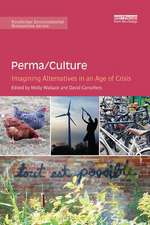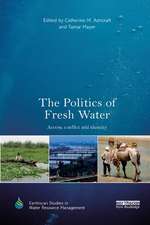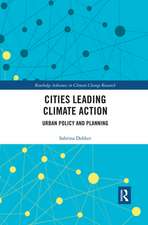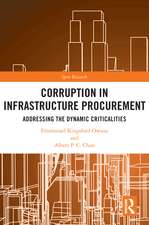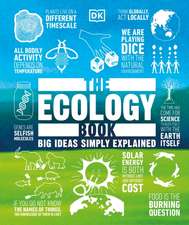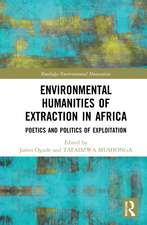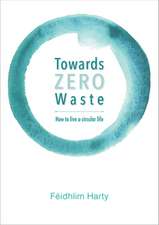Sustainability of Biomass through Bio-based Chemistry: Sustainability: Contributions through Science and Technology
Editat de Valentin Popaen Limba Engleză Paperback – 30 sep 2022
FEATURES
- Discusses waste from urban areas, forestry and agricultural processes, specifically grown crops such as trees, starch crops, sugar crops hydrocarbon plants and oils, and finally aquatic plants such as water seaweeds and algae, which can be used as raw materials for sustainable development.
- Presents recent advances in the development of some specifically chemical components of biomasses for a sustainable future.
- Focuses on lignocellulose as a source of bio-based products.
- Draws upon expertise from various countries.
- Describes how upgraded and integrated biomass processing may reduce the risks associated with the COVID-19 pandemic.
Valentin I. Popa is professor emeritus of Wood Chemistry and Biotechnology at Gheorghe Asachi Technical University of Iasi, Romania.
| Toate formatele și edițiile | Preț | Express |
|---|---|---|
| Paperback (1) | 438.14 lei 6-8 săpt. | |
| CRC Press – 30 sep 2022 | 438.14 lei 6-8 săpt. | |
| Hardback (1) | 1272.54 lei 6-8 săpt. | |
| CRC Press – 22 mar 2021 | 1272.54 lei 6-8 săpt. |
Preț: 438.14 lei
Nou
Puncte Express: 657
Preț estimativ în valută:
83.88€ • 86.31$ • 70.70£
83.88€ • 86.31$ • 70.70£
Carte tipărită la comandă
Livrare economică 01-15 martie
Preluare comenzi: 021 569.72.76
Specificații
ISBN-13: 9780367710125
ISBN-10: 0367710129
Pagini: 320
Ilustrații: 23 Tables, black and white; 200 Illustrations, black and white
Dimensiuni: 156 x 234 x 17 mm
Greutate: 0.5 kg
Ediția:1
Editura: CRC Press
Colecția CRC Press
Seria Sustainability: Contributions through Science and Technology
ISBN-10: 0367710129
Pagini: 320
Ilustrații: 23 Tables, black and white; 200 Illustrations, black and white
Dimensiuni: 156 x 234 x 17 mm
Greutate: 0.5 kg
Ediția:1
Editura: CRC Press
Colecția CRC Press
Seria Sustainability: Contributions through Science and Technology
Public țintă
Academic, Postgraduate, Professional, and Professional Practice & DevelopmentCuprins
1. Biomass and Sustainability 2. Selectively Transformation of Lignin into Value-added Chemicals 3. Nanocellulose-based Materials for the Solar Cell, Wearable Sensors, and Supercapacitors 4. Horizons for Future Sustainability: From Trash to Functional Cellulose Fibres 5. Cellulose Valorization for the Development of Bio-based Functional Materials via Topochemical Engineering 6. Sustainable Hydrogels from Renewable Resources 7. Production of Cellulosic Membranes from Rice Husks for Reverse Osmosis Applications 8. Morphological Aspects of Sustainable Hydrogels 9. Bio-based Stimuli-responsive Hydrogels with Biomedical Applications 10. Curdlan Derivatives: New Approaches in Synthesis and Their Applications
Notă biografică
Valentin I. Popa is professor emeritus of Wood Chemistry and Biotechnology at Gheorghe Asachi Technical University of Iasi, Romania. Professor Popa earned a BSc and an MSc in chemical engineering (1969) and a PhD in polysaccharide chemistry (1976) at Polytechnic Institute of Iasi, Romania. He was awarded the Romanian Academy Prize for his contributions in the field of seaweed chemistry (1976). He has published more than 600 papers in the fields of wood chemistry and biotechnology, biomass complex processing, biosynthesis, and biodegradation of natural com- pounds, allelochemicals, bioadhesives, and bioremediation. Professor Popa is the author and co-author of 38 books and book chapters.
Descriere
The process of photosynthesis is a potential source of energy and bioproducts. Renewable sources of polymeric materials offer an answer to maintaining sustainable development of economically and ecologically attractive technology.












